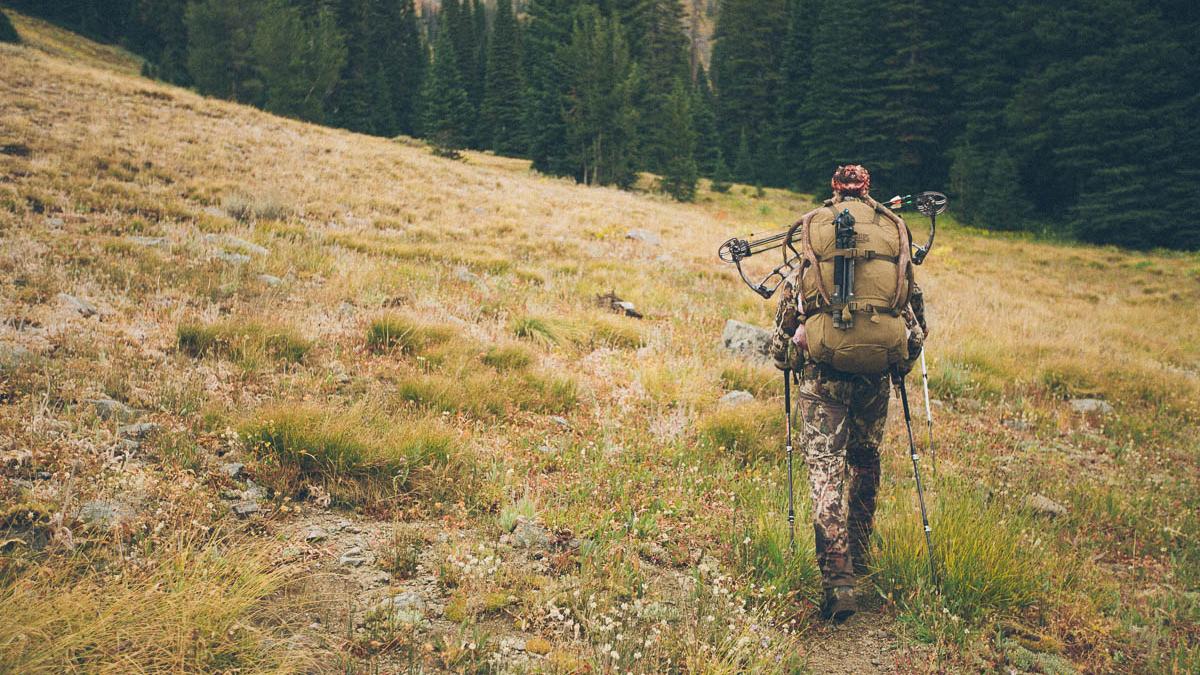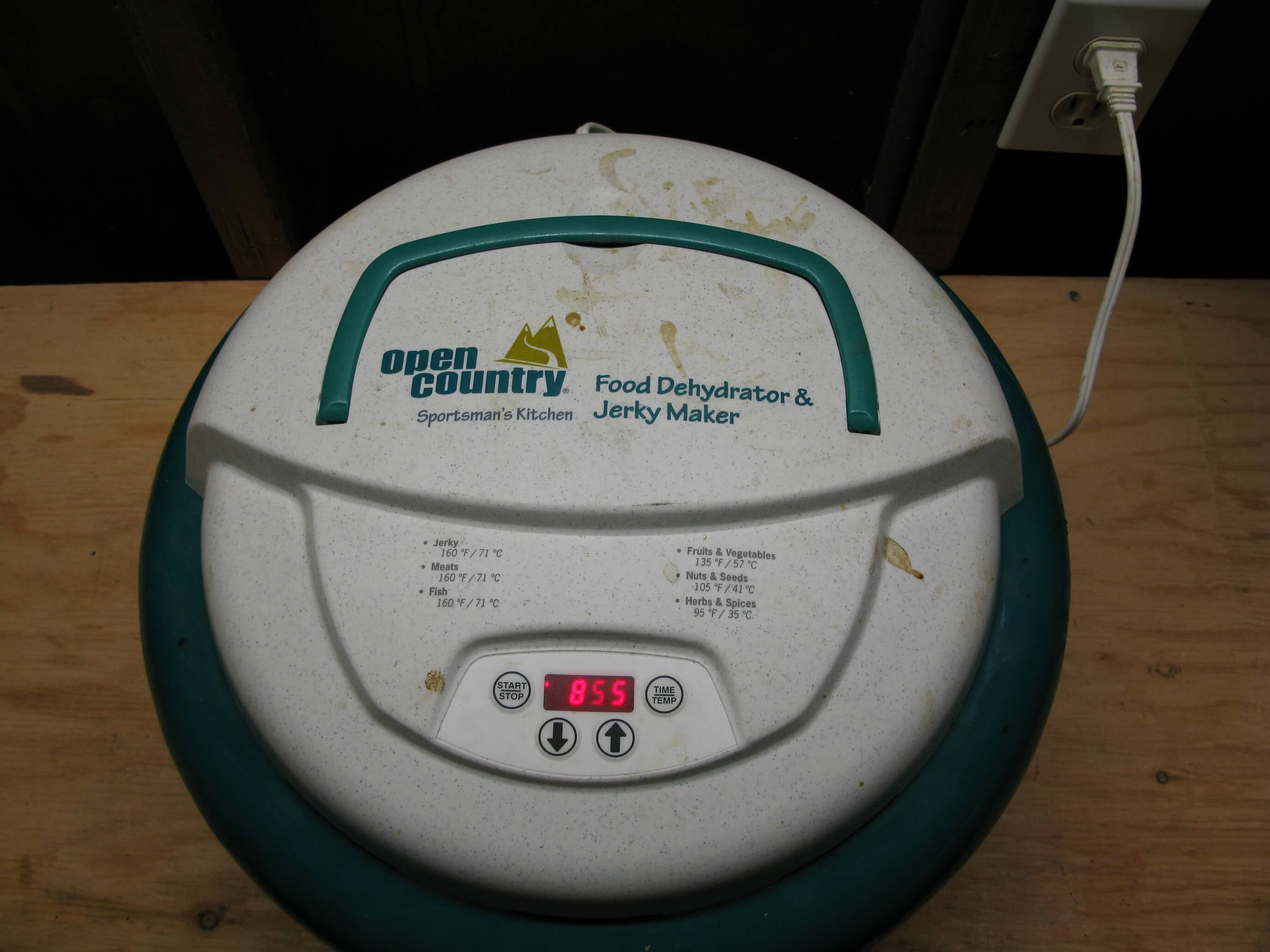
Making Your Own Backcountry Meals
Most backcountry hunters have resigned themselves to being limited in their food options to freeze dried meals, some of which are good, but many are not. If you are on a budget, cheap (like me) or just want to have more options for fueling your body that aren’t sodium-soaked freeze dried meals, keep reading.
Over the years I’ve learned how to make cheap meals that are quick to prepare, of decent quality, and give my body the fuel it needs to maximize hunting time. Food in the backcountry is all about balancing efficiency, weight and cost. The food I carry isn’t ultra-lightweight, but it is lightweight, and equally as importantly, gives me the balance of calories and nutrients needed to keep my body going in tough, exerting conditions.
Calories and the right balance of proteins, fats and carbohydrates are what guide my decision on what to eat. I tend to need a lot of calories and have a difficult time eating enough to keep pace with what I'm burning. I like to have at least 4,000 calories a day and sometimes more.
Backcountry Food Principles
Before getting to the meals, it’s worth going over a few principles that should guide your decisions for what to throw in your pack.
- All meals should be quick to prepare, and simple. If you have to do more than add water to a meal, you are wasting time and fuel.
- Organize your food for each meal/day into plastic bags at home so you bring exactly what you need and nothing more.
- Powdered butter, cheese and peanut butter will change your life. Seriously. If you haven't already, check out Hoosier Hill Farms products. You can add quality calories by the tablespoon, and they are delicious.
- Don’t forget the coffee. Starbucks via’s are hard to beat for an addict like me, even though you pay a premium for them. A little caffeine can get you through a long grueling day of hunting.
- Dinner is where you will likely get most of your calories for the day. Try to make sure your dinner is at least 750 calories, but if you are like me, upwards of 1,200-1,500.
- Snack throughout the day to avoid getting hungry. Bring food that you can eat on the go and eat a little bit every hour or two to keep a steady flow of calories, which will help you avoid bonking, and stave off hunger.
Dehydrating food
 A simple dehydrator like this one is essential for the hunter that wants to save weight and money.
A simple dehydrator like this one is essential for the hunter that wants to save weight and money.
You don’t have to dehydrate food to make your own meals, but you should. A small dehydrator is cheap and easy to use, and you can dehydrate nearly anything. Moreover, the cost savings from making your own meals will more than make up for the cost of a dehydrator many times over. It is incredibly easy to use and doesn’t take that much time. In one night I can make 6 or 7 dinners fairly easily with this inexpensive dehydrator. My average cost per dinner meal is around $3. With a handful of week long trips, a dehydrator will easily pay for itself in one season.
The secret to quick and simple dehydrated meals that only require the addition of water in the field is to cook every meal like you normally would at home, and then dehydrate it. It’s that simple.
When you are in the field, all you’ll have to do is add water and wait 15-20 minutes. One caution—animal fats don’t dehydrate well, so leave the butter out of recipes that call for it or your meals will spoil (you can add back in dehydrated butter). You can carry a little bottle of olive oil and add it to meals for extra calories if you like. Also, if you dehydrate meat, make sure it is extra lean (I like to use game meat).
DIY Meals
Since dinner is typically the biggest meal of the day when backpack hunting, I’ll focus on what I do to prepare my biggest meal of the day. For any dinner, I mix a carbohydrate, a protein and a vegetable in with each meal to make sure I’m getting the nutrients I need each day. I'm also shooting for a minimum of 1,000 calories, but ideally as much as 1,500 calories in a dinner if I'm really going hard during the day.
Base Carbohydrates Foods
For each meal, I like to start with dehydrated mashed potatoes, instant cous cous, mac and cheese, or beans and rice as my go-to foods for cheap, effective dinners. If I’m pinched for time, instant mashed potatoes and cous cous come in a variety of flavors in most grocery stores and they do not require cooking or dehydrating. All you have to do is add hot water. There are many other options for a “base” carbohydrates, but I tend to buy pre-packaged foods that come with spices and don’t have loads of preservatives.
Fat and Protein
I add a healthy amount of protein to every dinner (much more than any dehydrated meal I’ve bought) and eat protein and fats for breakfast and lunch. Elk and deer burger dehydrate and reconstitute very well, especially if you haven’t added any fat to it (this is important as fats do not dehydrate well and can cause your meals to spoil). I like to dehydrate a half pound of burger and for each meal, which when dehydrated weighs only a couple ounces.
If I don’t have time to dehydrate meat, I will use smoked wild salmon in a pouch (not a can). It isn’t ultra-lightweight, but it is relatively light, and fairly cheap if you are only using it for a couple meals.
Fruits and Vegetables
I buy frozen vegetables in a bag, cook them on my stove and then dehydrate them. I do this in bulk once a year so I have a bunch handy, and then toss in a handful of vegetables in with most every dinner. For whatever reason, I’ve found that green beans, carrots and broccoli tend to rehydrate better than vegetables like corn.
Four Cheap, Lightweight Backcountry Dinners
These are some of my favorite, easy go-to meals in the backcountry that only require the addition of water.
- The Idahoan: The Idaho Potato Commission approves this message: The base for this is Idahoan dehydrated mashed potatoes. No pre-cooking is required, they are quick to make and will fill you up. At around $1.00 per package, the price is definitely right and you can buy them in about a dozen different flavors. Toss in a half pound of dehydrated elk meat or salmon and a handful of vegetables to top it off. The basics of my dinners. Easy and cheap.
- Cous cous Supreme: Add water and wait 5 minutes. Throw in some Chicken of the Sea Smoked Salmon in a pouch (not dehydrated) and a handful of vegetables. Add in 3-4 tablespoons of powdered butter for some extra calories and flavor. Wolfgang Puck would approve.
- Backcountry Burritos: Cook a package of Zatarans Black Beans and Rice on your stove top at home and throw it on the dehydrator. Add some dehydrated elk meat. Stash a few tortillas in your pack to complete the meal.
- Mac and Cheese: Prepare your favorite mac and cheese noodles as usual by boiling, but don’t add the cheese. Dehydrate the noodles, put the dehydrated noodles in a zip lock bag, pour the powdered cheese in, and 3-4 scoops of dehydrated butter. Throw in some dehydrated elk (or other protein source) burger and a handful of vegetables.
Lunch
Lunch should be quick and easily accessible while you are hunting. I don't eat once during the day, and I've found it is much better to snack throughout the day rather than eating once during the day to keep a steady stream of calories. A typical lunch for me includes the following:
- Pro Bar Meal bar, appr. 390 calories
- Pro Bar Base bar, app. 300 calories
- Odwalla Superfood Bar, 290 calories
- Nature's Bakery Fig Bar, 220 calories
- Assorted dried fruits and nuts
In addition to the above, I'll also throw in some chocolate or chunks of cheese to break up the monotony of energy bars. Energy bars and cheese are calorically dense (efficient), require no cooking and are packable.
Breakfast
I’m pretty basic when it comes to breakfast. Breakfast needs to be quick so you can get out of camp early and on the mountain. I like something warm, and like to use Better Oats Steel Cut Oatmeal with powdered peanut butter and a few raisins.
2-3 pouches Oatmeal = 340-510 calories
2-4 scoops dehydrated peanut butter = 100-200 calories (and up to 24g or protein)
I've already mentioned this, but just in case you skipped over it above, dehydrated peanut butter made by Hoosier Hill Farms has become my favorite dehydrated peanut butter. It is a good lightweight option for added calories (although you lose a lot of the fats and proteins when it is dehydrated) and there isn't anything other than roasted peanuts in it.
I hope this was helpful for all you dirtbag hunters out there like me. If you have a favorite meal or any tips, leave them in the comments below.